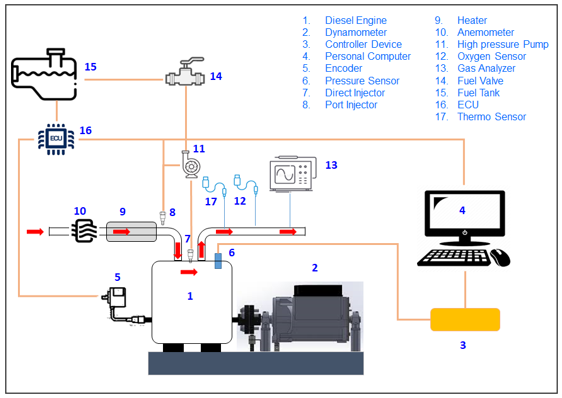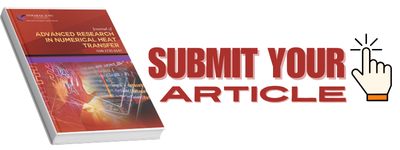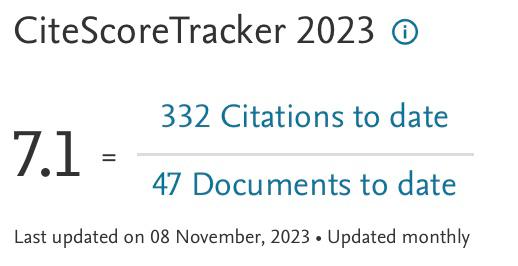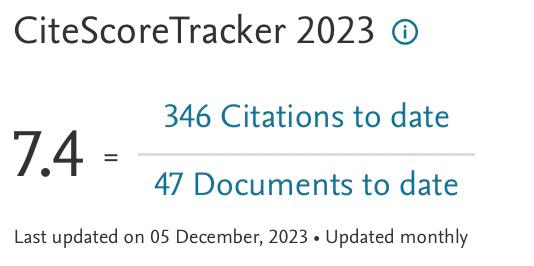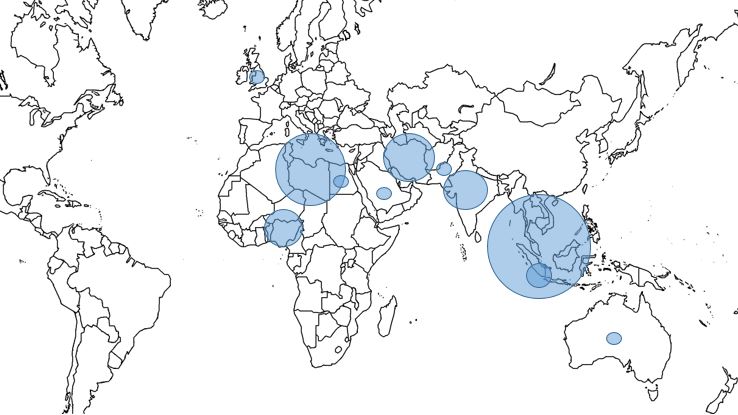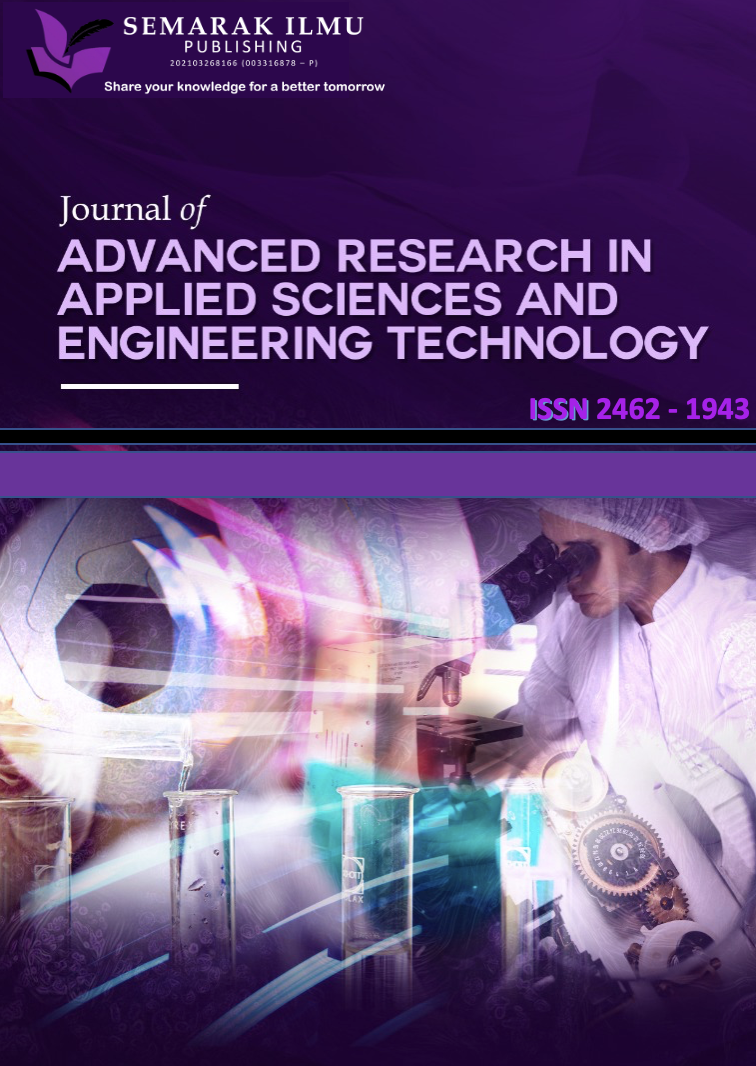Computational Fluid Dynamics (CFD) Validation and Investigation the Effect of Piston Bowl Geometries Performance on Port Fuel Injection-Homogeneous Charge Compression Ignition (PFI-HCCI) Engines
DOI:
https://doi.org/10.37934/arnht.18.1.3048Keywords:
HCCI, Diesel, Piston Bowl, Port Fuel Injection, Computational Fluid Dynamics, Internal Combustion EngineAbstract
Homogeneous charge compression ignition (HCCI) is an advanced combustion strategy proposed to provide higher efficiency and lower emissions than conventional compression ignition. Nevertheless, the operation of HCCI engines still presents formidable challenges. Preparing homogeneous mixtures and controlling the combustion phase are crucial challenges in the context of engine performance. Piston bowl geometry significantly enhances the process by improving the flow and facilitating air-fuel mixing for combustion. On that note, this study utilised the CFD simulation methods to analyse HCCI combustion in port fuel injection (PFI) mode and evaluate the effect of piston bowl geometries on engine performance. For this purpose, the CFD simulation result for a single-cylinder, four-stroke YANMAR diesel engine was validated with experimental data. The different piston bowl geometries with the same volume, compression, and equivalence ratio were then investigated numerically. The validation result of the CFD simulation offers enough confidence to continue the study with different piston bowl geometries. The results attained from the Direct Injection (DI) engine piston bowl application demonstrate a minor change in in-cylinder pressure and heat release rate. The piston bowl design employed in a Port Fuel Injection engine application exhibited different combustion phases while demonstrating similarity in attaining in-cylinder pressure. The findings for swirl induce piston bowl design indicate an enhancement of in-cylinder pressure for the Spiral Crown geometry model, reaching 9.42 MPa. The results of the study demonstrated that the piston bowl's design affected the performance of an HCCI engine.
Downloads
References
Lyu, Pu, Peirong Slade Wang, Yuanyuan Liu, and Yuanqing Wang. "Review of the studies on emission evaluation approaches for operating vehicles." Journal of Traffic and Transportation Engineering (English Edition) 8, no. 4 (2021): 493-509. https://doi.org/10.1016/j.jtte.2021.07.004
IEA, “Energy Technology Perspectives 2020,” Energy Technology Perspectives 2020, IEA, Paris, 2020. https://www.iea.org/reports/energy-technology-perspectives-2020
Zhang, Linling, Ruyin Long, Hong Chen, and Jichao Geng. "A review of China's road traffic carbon emissions." Journal of Cleaner Production 207 (2019): 569-581. https://doi.org/10.1016/j.jclepro.2018.10.003
ACEA, “Car and van CO2 targets: Europe needs a realistic roadmap to reach carbon neutrality,” 2022. https://www.acea.auto (accessed Oct. 02, 2022).
Ahmad, Zishan, Mohammad Junaid Khan, and Md Naqui Akhtar. "A Critical Review of Hybrid Electric Vehicles." Journal of Advanced Research in Applied Sciences and Engineering Technology 29, no. 1 (2022): 283-294.
https://doi.org/10.37934/araset.29.1.283294
Babagiray, Mustafa, Tolga Kocakulak, Seyed Mohammad Safieddin Ardebili, Hamit Solmaz, Can Çınar, and Ahmet Uyumaz. "Experimental and statistical investigation of different valve lifts on HCCI combustion, performance and exhaust emissions using response surface method." Energy 244 (2022): 123184. https://doi.org/10.1016/j.energy.2022.123184
Tobib, Hasyuzariza M., Hamzah Rostam, Muntasser AA Mossa, A. Aziz Hairuddin, and M. M. Noor. "The performance of an HCCI-DI engine fuelled with palm oil-based biodiesel." In IOP Conference Series: Materials Science and Engineering, vol. 469, no. 1, p. 012079. IOP Publishing, 2019. https://doi.org/10.1088/1757-899X/469/1/012079
Puškár, Michal, and Melichar Kopas. "System based on thermal control of the HCCI technology developed for reduction of the vehicle NOX emissions in order to fulfil the future standard Euro 7." Science of the Total Environment 643 (2018): 674-680. https://doi.org/10.1016/j.scitotenv.2018.06.082
Hasan, M. M., and Md Mustafizur Rahman. "Homogeneous charge compression ignition combustion: Advantages over compression ignition combustion, challenges and solutions." Renewable and Sustainable Energy Reviews 57 (2016): 282-291. https://doi.org/10.1016/j.rser.2015.12.157
Alias, M. S. M., A. A. Hairuddin, M. K. Hassan, and K. A. M. Rezali. "A review of hydrogen addition in an HCCI engine fueled with biofuels." In AIP Conference Proceedings, vol. 2059, no. 1. AIP Publishing, 2019. https://doi.org/10.1063/1.5085988
Gray III, Allen W., and Thomas W. Ryan III. "Homogeneous charge compression ignition (HCCI) of diesel fuel." SAE transactions (1997): 1927-1935. https://doi:10.4271/971676
Yao, Mingfa, Zhaolei Zheng, and Haifeng Liu. "Progress and recent trends in homogeneous charge compression ignition (HCCI) engines." Progress in energy and combustion science 35, no. 5 (2009): 398-437. https://doi.org/10.1016/j.pecs.2009.05.001
Liu, Haifeng, Mingfa Yao, Bo Zhang, and Zunqing Zheng. "Effects of inlet pressure and octane numbers on combustion and emissions of a homogeneous charge compression ignition (HCCI) engine." Energy & Fuels 22, no. 4 (2008): 2207-2215. https://doi.org/10.1021/ef800197b
Christensen, Magnus, Anders Hultqvist, and Bengt Johansson. "Demonstrating the multi fuel capability of a homogeneous charge compression ignition engine with variable compression ratio." SAE transactions (1999): 2099-2113. https://doi.org/10.4271/1999-01-3679
Kelly-Zion, Peter L., and John E. Dec. "A computational study of the effect of fuel type on ignition time in homogenous charge compression ignition engines." Proceedings of the Combustion Institute 28, no. 1 (2000): 1187-1194. https://doi.org/10.1016/S0082-0784(00)80329-X
Pastor, José V., Antonio García, Carlos Micó, Felipe Lewiski, Alberto Vassallo, and Francesco Concetto Pesce. "Effect of a novel piston geometry on the combustion process of a light-duty compression ignition engine: An optical analysis." Energy 221 (2021): 119764. https://doi.org/10.1016/j.energy.2021.119764
Benajes, Jesús, Antonio García, José Manuel Pastor, and Javier Monsalve-Serrano. "Effects of piston bowl geometry on Reactivity Controlled Compression Ignition heat transfer and combustion losses at different engine loads." Energy 98 (2016): 64-77. https://doi.org/10.1016/j.energy.2016.01.014
Mittal, Gaurav, Maharshi Subhash, and Manoj Gwalwanshi. "Effect of initial turbulence on combustion with ECFM-3Z model in a CI engine." Materials Today: Proceedings 46 (2021): 11007-11010. https://doi.org/10.1016/j.matpr.2021.02.097
Wang, Xinyan, and Hua Zhao. "Effect of piston shape design on the scavenging performance and mixture preparation in a two-stroke boosted uniflow scavenged direct injection gasoline engine." International Journal of Engine Research 22, no. 5 (2021): 1484-1499. https://doi.org/10.1177/1468087419900072
Rizvi, Ikhtedar Husain, and Rajesh Gupta. "Numerical investigation of injection parameters and piston bowl geometries on emission and thermal performance of DI diesel engine." SN Applied Sciences 3, no. 6 (2021): 626. https://doi.org/10.1007/s42452-021-04633-1
Prabhakaran, P., C. G. Saravanan, R. Vallinayagam, M. Vikneswaran, N. Muthukumaran, and K. Ashok. "Investigation of swirl induced piston on the engine characteristics of a biodiesel fueled diesel engine." fuel 279 (2020): 118503.
https://doi.org/10.1016/j.fuel.2020.118503
Adeniyi, Oladapo. "Numerical Investigation on the Effect of Piston Bowl Geometry on Combustion Characteristics of a Heavy-Duty Diesel Engine." Mapta Journal of Mechanical and Industrial Engineering (MJMIE) 3, no. 2 (2019): 9-20. https://doi.org/10.33544/mjmie.v3i2.114
Gulcan, Halil Erdi, and Murat Ciniviz. "Experimental study on the effect of piston bowl geometry on the combustion performance and pollutant emissions of methane-diesel common rail dual-fuel engine." Fuel 345 (2023): 128175.
https://doi.org/10.1016/j.fuel.2023.128175
Gafoor, CP Abdul, and Rajesh Gupta. "Numerical investigation of piston bowl geometry and swirl ratio on emission from diesel engines." Energy Conversion and Management 101 (2015): 541-551.
https://doi.org/10.1016/j.enconman.2015.06.007
Heywood, John B. Internal combustion engine fundamentals. McGraw-Hill Education, 2018.
Rakopoulos, C. D., G. M. Kosmadakis, and E. G. Pariotis. "Investigation of piston bowl geometry and speed effects in a motored HSDI diesel engine using a CFD against a quasi-dimensional model." Energy conversion and management 51, no. 3 (2010): 470-484. https://doi.org/10.1016/j.enconman.2009.10.010
Zha, Kan, Stephen Busch, Alok Warey, Richard C. Peterson, and Eric Kurtz. "A study of piston geometry effects on late-stage combustion in a light-duty optical diesel engine using combustion image velocimetry." SAE International Journal of Engines 11, no. 6 (2018): 783-804. https://doi.org/10.4271/2018-01-0230
Shaver, Gregory M., J. Christian Gerdes, and Matthew J. Roelle. "Physics-based modeling and control of residual-affected HCCI engines." (2009): 021002. https://doi.org/10.1115/1.3023125.
Zhao, Junliang, Ruomiao Yang, Yuchao Yan, Juan Ou, Zhentao Liu, and Jinlong Liu. Numerical study on the effect of injector nozzle hole number on diesel engine performance under plateau conditions. No. 2023-24-0033. SAE Technical Paper, 2023. https://doi.org/10.4271/2023-24-0033
Rather, Mushtaq Ahmad, and Mohammad Marouf Wani. "A numerical study on the effects of exhaust gas recirculation temperature on controlling combustion and emissions of a diesel engine running on HCCI combustion mode." International Journal of Automotive Science and Technology 2, no. 3 (2018): 17-27. https://doi.org/10.30939/ijastech..451574
Coşkun, Gökhan. "Numerical and experimental investigations of the effects of the second injection timing and alcohol-gasoline fuel blends on combustion and emissions of an HCCI-DI engine." (2018). https://doi.org/10.1016/j.fuel.2018.01.061
Pourfallah, Mohsen, Mahbod Armin, and Ali Akbar Ranjbar. "A numerical study on the effect of thermal and charge stratification on the HCCI natural gas engine." International Journal of Ambient Energy 42, no. 12 (2021): 1386-1395. https://doi.org/10.1080/01430750.2019.1608860
Quanwei, D. E. N. G., and L. I. N. Qizhao. "Numerical study of combustion in an HCCI fuelled with methane-hydrogen." Journal of University of Science and Technology of China 49, no. 6 (2019): 476. https://doi:10.3969/j.issn.0253-2778.2019.06.007
Yu, Hanzhengnan, Xingyu Liang, and Gequn Shu. "Numerical study of the early injection parameters on wall wetting characteristics of an HCCI diesel engine using early injection strategy." International Journal of Automotive Technology 18 (2017): 759-768. https://doi.org/10.1007/s12239-017-0075-8
Sharma, T. Karthikeya, G. Amba Prasad Rao, and K. Madhu Murthy. "Numerical investigations on HCCI engine with increased induction induced swirl and engine speed." Journal of Central South University 22 (2015): 3837-3848.
https://doi.org/10.1007/s11771-015-2928-5
Suryantoro, M. Taufiq, Bambang Sugiarto, and Fariz Mulyadi. "Growth and characterization of deposits in the combustion chamber of a diesel engine fueled with B50 and Indonesian biodiesel fuel (IBF)." Biofuel Research Journal 3, no. 4 (2016): 521-527. https://doi.org/10.18331/BRJ2016.3.4.6
Bidita, B. S., A. R. Suraya, M. A. Shazed, MA Mohd Salleh, and A. Idris. "Preparation, characterization and engine performance of water in diesel nanoemulsions." Journal of the Energy Institute 89, no. 3 (2016): 354-365. https://doi.org/10.1016/j.joei.2015.03.004
H. M. Tobib, “Experimental Investigation on Performance of Homogeneous Charge Compression Ignition Engine Fueled with Palm Oil Based Biodiesel,” Universiti Putra Malaysia, 2019.
Ansys, “Forte Theory Manual,” ANSYS Inc., USA. 2021.
Patel, Amar, Song-Charng Kong, and Rolf D. Reitz. Development and validation of a reduced reaction mechanism for HCCI engine simulations. No. 2004-01-0558. SAE Technical Paper, 2004. https://doi.org/10.4271/2004-01-0558
Ganji, Prabhakara Rao, Rudra Nath Singh, V. R. K. Raju, and S. Srinivasa Rao. "Design of piston bowl geometry for better combustion in direct-injection compression ignition engine." Sādhanā 43 (2018): 1-9. https://doi.org/10.1007/s12046-018-0907-x
Vaz, Marilia Gabriela J., Felipe Grossi L. Amorim, Jean Helder M. Ribeiro, Rudolf Huebner, and Ramon Molina Valle. Numerical analysis of the piston crown geometry influence on the tumble and squish in a single cylinder engine. No. 2014-36-0300. SAE Technical Paper, 2014. https://doi.org/10.4271/2014-36-0300
Fujimoto, Masahiko, Kohei Iwai, Motoshi Kataoka, and Michihiko Tabata. "Effect of combustion chamber shape on tumble flow, squish-generated flow and burn rate." JSAE review 23, no. 3 (2002): 291-296. https://doi.org/10.1016/S0389-4304(02)00201-1
Yakhot, Victor, and Steven A. Orszag. "Renormalization group analysis of turbulence. I. Basic theory." Journal of scientific computing 1, no. 1 (1986): 3-51. https://doi.org/10.1007/BF01061452
Ansys, “ANSYS Chemkin-Pro Theory Manual.” ANSYS Inc., USA, 2022.
Mobasheri, Raouf, Abdel Aitouche, Zhijun Peng, and Xiang Li. "A numerical study of the effects of oxy-fuel combustion under homogeneous charge compression ignition regime." International Journal of Engine Research 23, no. 4 (2022): 649-660. https://doi.org/10.1177/1468087421993359
Henein, Naeim A., A. Bhattacharyya, Jeremy Schipper, A. Kastury, and Walter Bryzik. Effect of injection pressure and swirl motion on diesel engine-out emissions in conventional and advanced combustion regimes. No. 2006-01-0076. SAE Technical Paper, 2006. https://doi.org/10.4271/2006-01-0076
Kumar, Prashant, Ashok Darsigunta, B. Chandra Mouli, Vinod Kumar Sharma, Neeraj Sharma, and Anil Singh Yadav. "Analysis of intake swirl in a compression ignition engine at different intake valve lifts." Materials Today: Proceedings 47 (2021): 2869-2874. https://doi.org/10.1016/j.matpr.2021.03.663
Bari, S., S. N. Hossain, and I. Saad. "A review on improving airflow characteristics inside the combustion chamber of CI engines to improve the performance with higher viscous biofuels." Fuel 264 (2020): 116769. https://doi.org/10.1016/j.fuel.2019.116769
